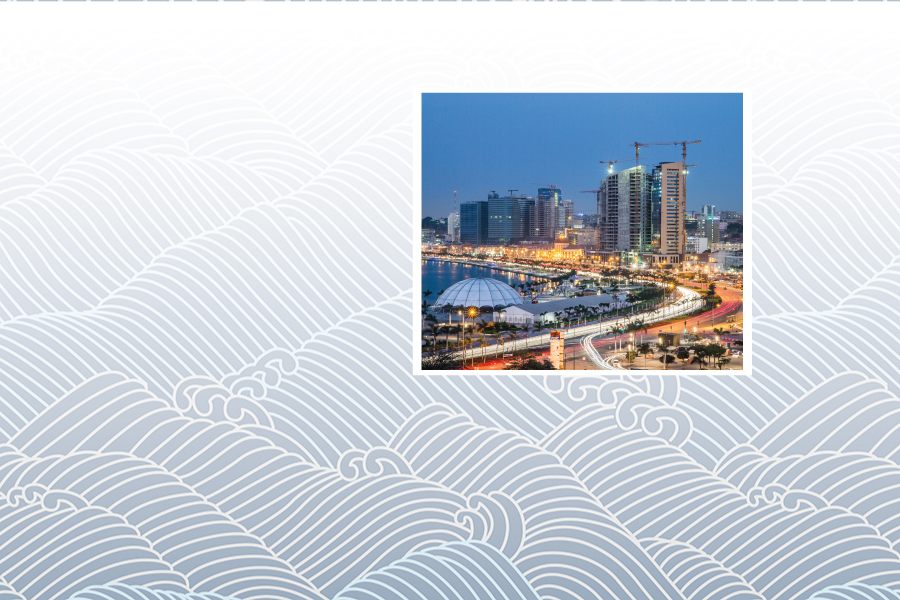The decision to invest in a new market by a foreign investor is often framed by the pursuit of a predictable legal framework, which among other things respects the sanctity of contracts and facilitates a level playing field. Regardless of the industry, careful planning is the rule of thumb for those who wish to invest in a market with the characteristics of Angola.

Partner
Tel: +244 926 877 478
Email: catarinaosorio@alcadvogados.com
This article provides a useful tool for navigating the Angolan legal framework and planning future investment in the country, which is both rewarding and challenging for foreign investors
General outlook
Angola is a country with a growing population of more than 31 million, divided into 18 provinces, with its capital, Luanda, home to 2.5 million people. Well known for being the second-largest oil producer of the African continent, Angola also has potential to develop other unrelated industries such as mining, agriculture, construction, power generation, fisheries and tourism.
The 21st century has brought Angola a wave of political, social and economic innovation. After the end in 2002 of a long civil war, which was immediately preceded by the independence war, the country received a boost to foreign direct investment (FDI), making the country one of the most fast-paced growth economies in sub-Saharan Africa, and Luanda one of the most vibrant cities on the continent.
Such a development would not be possible without the consolidation of the Angolan legal framework and the underlying political system. In Angola, the National Assembly is the source of legislative power, shared with the holder of executive power, the president of the republic. The country adopted a presidential system following the approval of the Angolan Constitution in 1992. Angola has a civil law system.
After five years of sharp economic downturn, and highly influenced by the crash of the oil price, the national GDP has decreased from US$145 billion in 2014 to US$88 billion in 2020. Oil production, which accounts for almost 90% of the country’s exports, also suffered a decline as the national general output dropped from 1.7 million barrels per day in 2015 to 1.4 million in 2019.

Consultant
Tel: +244 926 877 478
Email: jacunha@alcadvogados.com
The crash in oil prices, combined with the decline of national production and the unprecedented covid-19 pandemic, has led to an increase in the public debt to 123% of GDP in 2020. The economic crisis also resulted in a sharp depreciation of the national currency, and inflation has been unstable since 2015.
The government has been able to enact reforms towards macroeconomic stability through the implementation of a more flexible exchange rate regime, restrictive monetary policy, and fiscal consolidation.
Context and opportunities
After 2017, the government launched several initiatives aimed at diversifying an over-dependence on petroleum resources. Among the policies recently championed, the authors highlight the large-scale privatisation programme called PROPRIV, which includes the disposal of many of the state’s assets and shareholdings in well-known public companies such as Sonangol (the national oil company), Endiama (mining), and UNITEL (telecoms). It is envisaged that some privatisations are made through initial public offerings on the Angolan Stock Market Exchange (Bodiva), in an attempt to foster the creation of a capital market system.
In addition to PROPRIV, the Angolan executive has sought to create more business opportunities by tackling one of the country’s principal challenges – the lack of infrastructure. By exploring the possibility of launching public-private partnerships (PPPs), Angola intends to improve its infrastructures via large-scale public works.
Several projects are underway. The requalification of the port of Namibe, and the development of the most recent oil refinery to be built in Cabinda, are examples of projects recently developed by the Angolan executive. International financial institutions have also been actively working in Angola to boost the construction of basic infrastructure, and Sonangol has launched a new international tender process to find a partner to develop an oil storage base in Dande Port, in the north of Luanda.
Angola’s key industries were also substantially reformed, and companies holding mineral rights over petroleum, gas and diamonds were restructured. Sonangol was split into two different entities:
(1) the Angolan Petroleum, Gas and Biofuels Authority (ANPG), holder of the mineral rights, and
(2) the country’s national oil company Sonangol, focused on the exploration and development of petroleum activities.

Consultant
Tel: +244 926 877 478
Email: ftpedro@alcadvogados.com
These reforms were set out with a plan to revert the decline of oil production output. ANPG plans to bid 55 new oil blocks up to 2025, in onshore and offshore basins. The mining sector has also been subject to deep reform and new concessions have been launched.
Noteworthy regulatory developments include the enactment of a Competition Law in 2018 and an Anti-Money Laundering (AML) Law in 2020. The current Private Investment Law is to be amended, and an insolvency law has already passed the National Assembly.
Legal outlook
Adequate knowledge of the regulatory and legal framework is a mandatory step prior to investing in Angola. Not only must the investor be aware of limitations imposed by regulations, and restraints applicable to specific sectors (e.g., local content rules applicable to the oil and gas sector), they must also know what legal and practical constraints may hamper investment.
Foreign exchange controls in force in Angola and regular problems in accessing foreign currency are arguably the biggest issues for investors. To be entitled to freely repatriate dividends from Angola, a foreign investor must have a private investment project approved with the Agency for the Promotion of Investment and Exportations (AIPEX), under the Private Investment Law. The Private Investment Law also offers general protection on investments made in Angola, granting the foreign investor a general right to repatriate dividends once the corresponding project is fully implemented. The Private Investment Law was recently amended by the National Assembly, but the amendments have not yet been published in the official gazette.
It is expected they will introduce more pro-investment measures such as the re-introduction of a contractual regime, which will enable investors in large and capital-intensive projects to benefit from tax incentives. In 2018, Angolan partnerships, the share capital and management participation by Angolan citizens or entities in investment projects within so-called strategic sectors (tourism, transportation and logistics, telecoms and information technology) ceased to exist.
The new executive has made a great effort into attracting FDI, and has created economic free-trade zones in several provinces. This year, the Ministry of Economy and Planning announced that Angola wished to enter into bilateral investment treaties (BITs) with Japan, Mozambique and China.
The purpose of these BITs is to provide the investments made by their signatories a certain degree of protection, as the BIT usually sets out clauses for equal treatment
and protection from expropriation or nationalisation procedures. It is also worth noting that although many of these treaties include arbitration clauses, in case of investment disputes, Angola is not yet a signatory state of the Washington Convention, which established the International Centre for Settlement of Investment Disputes. As such, most of the said arbitration clauses refer to ad-hoc arbitration. The adherence of Angola to the Washington Convention is expected in the near future; the government has already approved becoming a signatory state, and ratification in the national assembly is pending.
Final remarks
Angola is actively attempting to diversify its economy, and is taking important steps to move to a more market-based economy. The country offers many opportunities, but also challenges, to foreign investors as the executive seeks to promote investment in different business sectors.
In conclusion, despite Angola’s relevant steps towards building a more business-friendly environment, a foreign investor should always carefully analyse the risks underlying the investment in the country, and know in advance the various issues underlying the regulatory and legal framework.

Catarina Levy Osório
Partner
Tel: +244 926 877 478
Email: catarinaosorio@alcadvogados.com
João Francisco Cunha
Consultant
Tel: +244 926 877 478
Email: jacunha@alcadvogados.com
Frederico de Távora Pedro
Consultant
Tel: +244 926 877 478
Email: ftpedro@alcadvogados.com
ALC Advogados
Masuika Office Plaza, Edifício MKO A
Piso 5, Escritório A, Talatona,
Município de Belas Luanda – Angola
Tel: +244 926 877 478
Email: geral@alcadvogados.com
www.alcadvogados.com






























